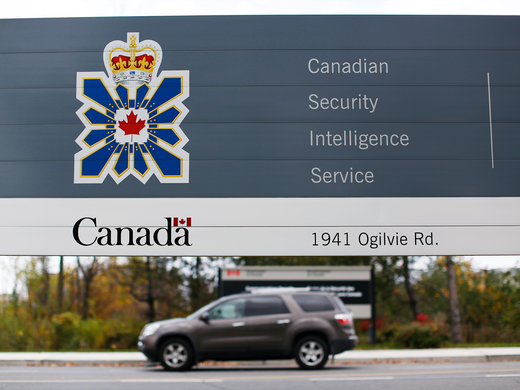Canadians have experienced a five-month-long saga of leaks of highly classified material regarding China’s foreign interference in Canada, curated by major news organizations. There is no sign the leaks will stop any time soon. They have been highly impactful, sparking political allegations of cover-ups and collusion with Beijing, undermining the Canadian public’s confidence in the outcome of recent federal elections, and forcing the government to hand over a decision on establishing some kind of public inquiry to a “special rapporteur,” former Governor General David Johnston.
They have caused spats between Canadian and Chinese officials at a recent Group of Twenty meeting, worsening a bilateral relationship that is already at its lowest point ever. One of the many leaks has led to an Ontario MPP, Vincent Ke, resigning his place in the Conservative caucus so that he can defend his name against what he claims are defamatory remarks about his alleged role in aiding Chinese election meddling.
We have been through a similar experience of impactful national security leaks once before but seem to have learned little from it. Twenty years ago, an orchestrated campaign of leaks of confidential information from within the Government of Canada was widely disseminated by the Canadian media. The target of this campaign was a Canadian of Syrian descent, Maher Arar. Arar was detained by US authorities on suspicions of being an al-Qaeda member (a suspicion based on fallacious Canadian intelligence generated by the Royal Canadian Mounted Police [RCMP]), shipped off to a Syrian military intelligence jail where he languished without charge and was tortured, before being returned to Canada following entreaties by the prime minister.
The intent of this leak campaign was to engage in character assassination to undermine Arar’s claims of innocence and to use the power of “secrets” to hint that far more was known to the intelligence community about Arar’s terrorist ties and his training at an infamous camp in Afghanistan than could be revealed.
Ultimately, the government of the day (Liberal) bowed to pressure and held a judicial inquiry into the role of Canadian officials in the treatment of Arar. The inquiry was led by Justice Dennis O’Connor. His findings, published in 2006, were damning about the role played by the RCMP in its investigation of Arar and about the unrestricted sharing of intelligence with US authorities. His report was also damning about the campaign of leaks to the media and the media’s treatment of those leaks.
Justice O’Connor concluded with a reminder that leaks designed to “manipulate public opinion” needed to be treated with extreme caution. He urged the public and media alike to reserve judgment until the facts could be known. High-minded, but what chance?
Chinese election interference leaks have led to immediate and, in many cases, unrealistic demands for instant reveals of national security information and calls for a public inquiry. Efforts by senior officials to distinguish between the reality of intelligence (based on an assemblage of partial information) and truths, have had little impact. A major contributing factor to the shock effect of the leaks has been a deep-seated failure on the part of governments of all political stripes to embrace appropriate levels of national security transparency.
The Stephen Harper government reneged on an election campaign promise to publish a national security policy and resisted all calls to create a parliamentary body to scrutinize national security matters. It abolished one existing review mechanism, the Office of the Inspector General of the Canadian Security Intelligence Service, and quietly extinguished the prime minister’s Advisory Council on National Security.
The current Liberal government, for its part, offered a “National Security Transparency Commitment” in 2017, and between 2017 and 2019 passed legislation that created an ambitious new system for holding national security and intelligence agencies to public account.
The National Security Transparency Commitment has been a disappointing failure; the new review entities, for all their potentiality, don’t see their primary role as speaking to the public. They see their audience as the government. In any case, the recommendations from the National Security and Intelligence Committee of Parliamentarians, established in 2017, are rarely heeded by government. This was particularly true for the report it tabled in Parliament in 2020 on foreign interference.
A persistent failure by successive Canadian governments to fully inform the Canadian public about the nature of national security threats and the responses to them, exemplified by the absence of a national security strategy, has brought us to this pass. Canadians are left reliant on partial leaks (curated by the media) about Chinese election meddling, shocked by them and fearful of the worst, including about the legitimacy of recent federal elections.
Keeping the public too much in the dark about the national security threat environment has brought us to a wholly unnecessary moment of political crisis and public distrust.



